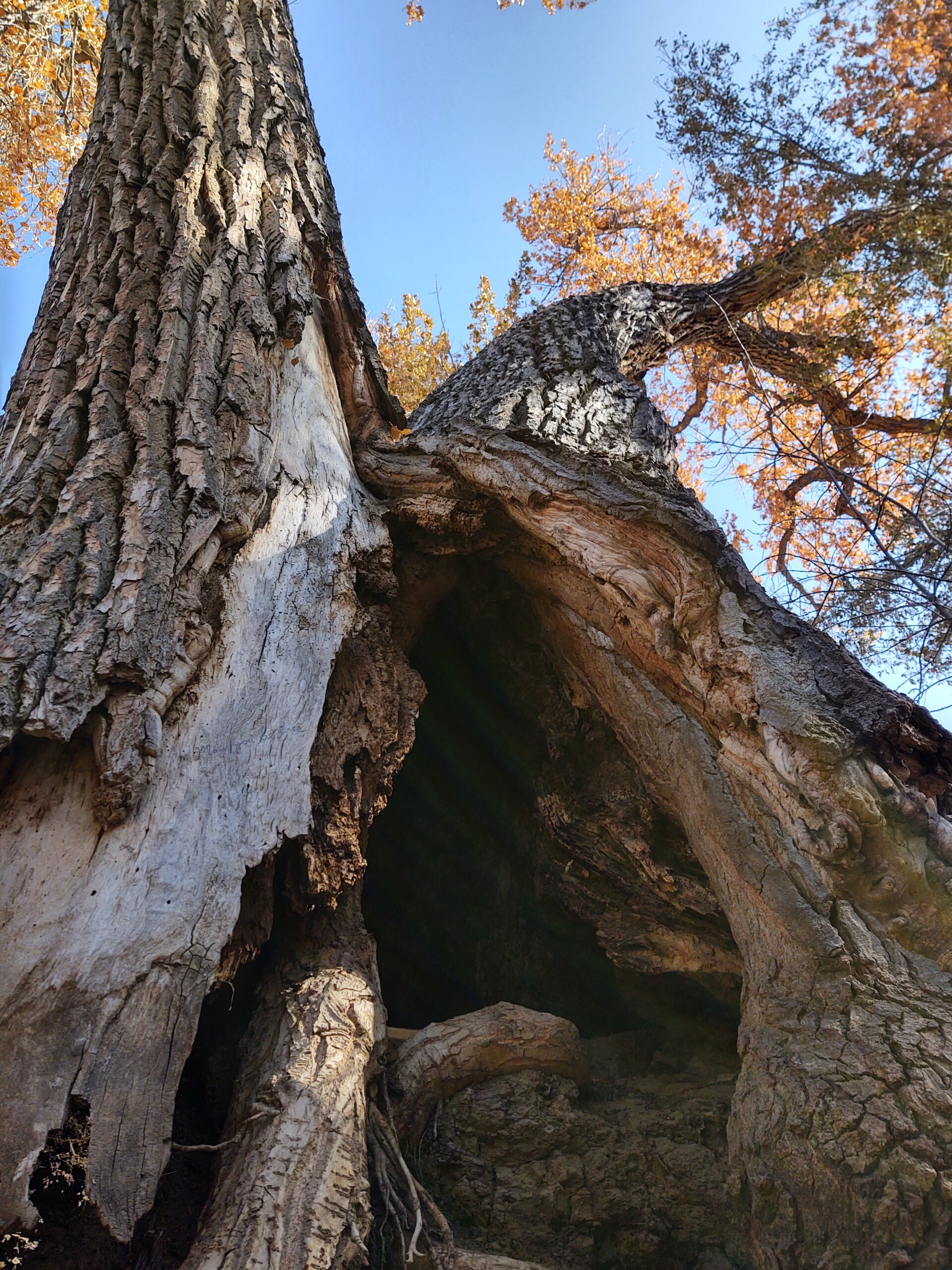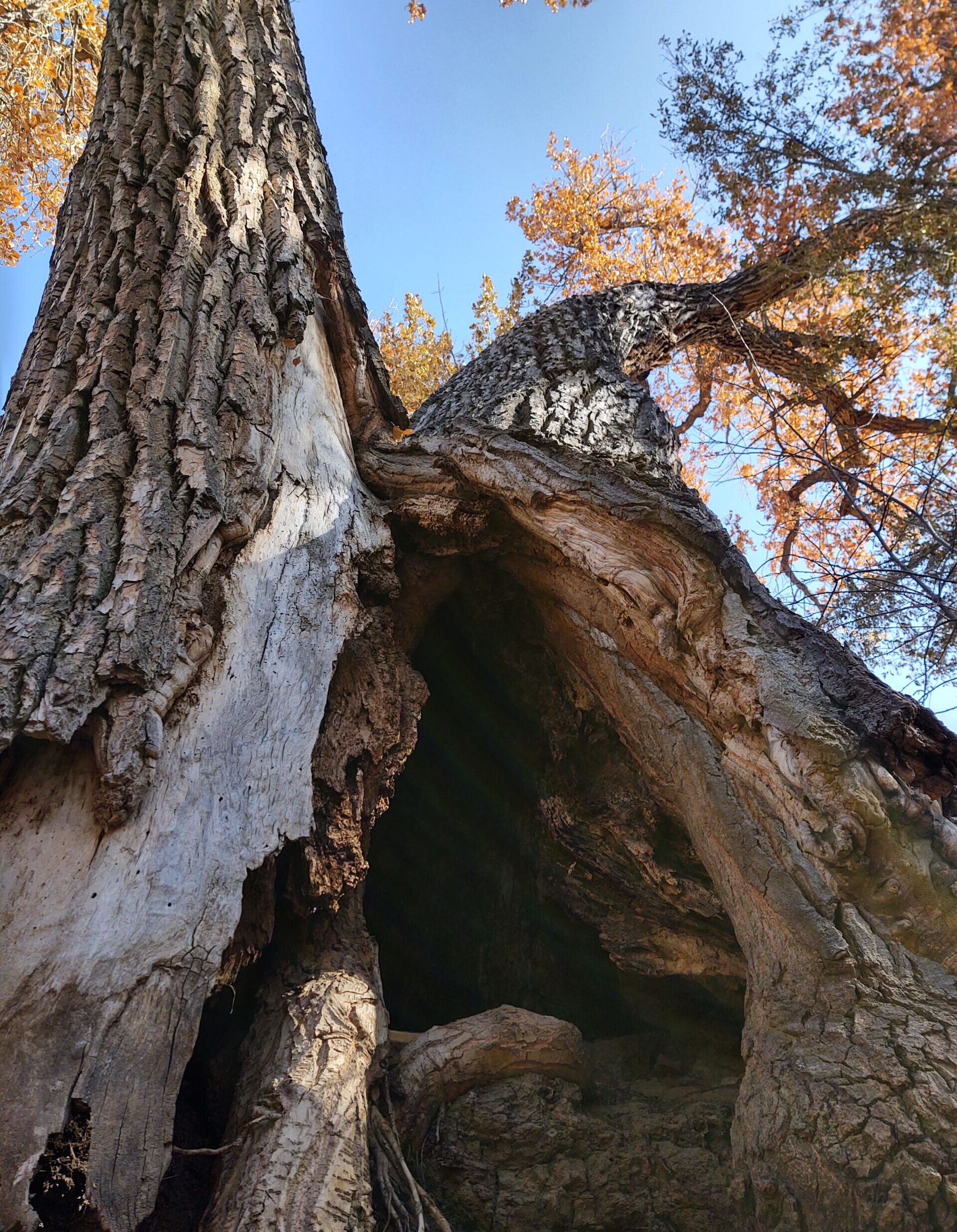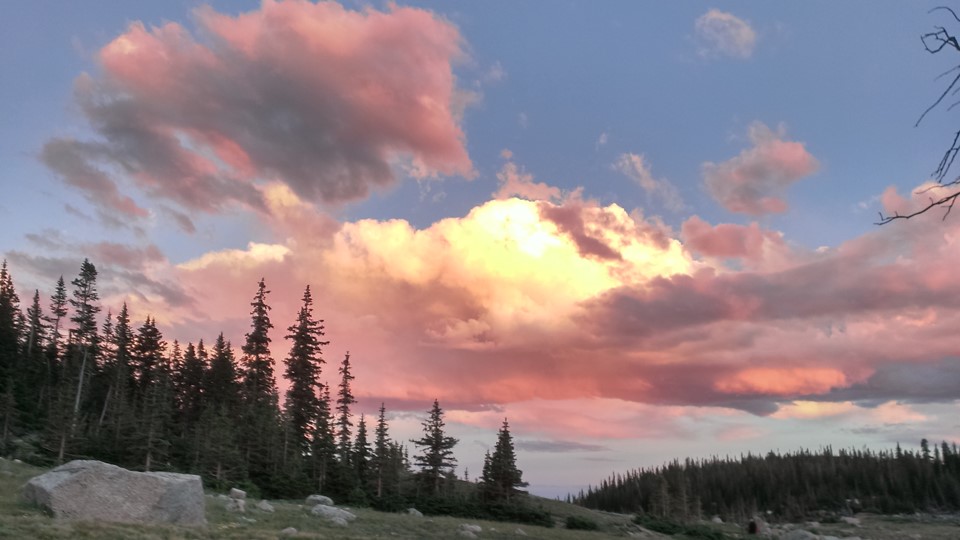
Why Nature?
“I feel spiritual in nature.” is a common response to the question of where one feels G!d’s presence. This is often true for people who don’t adhere to a particular religion or formal spiritual practice. Of course nature and wilderness touch us deeply. We feel more alive because we’re surrounding by life. We have evolved to be attuned to nature. It has been demonstrated that trees, even pictures of trees, accelerate healing. This is, to some degree, the reason for the effectiveness and new-found popularity of “forest bathing.”
How is it spiritual though? Have you ever talked to a tree? Have you felt a tree’s joy? This isn’t as outlandish as it sounds. I’m not making it up myself. It’s in our Psalms.
“I feel spiritual in nature.” is a common response to the question of where one feels G!d’s presence. This is often true for people who don’t adhere to a particular religion or formal spiritual practice. Of course nature and wilderness touch us deeply. We feel more alive because we’re surrounded by life. We have evolved to be attuned to nature. It has been demonstrated that trees, even pictures of trees, accelerate healing. This is, to some degree, the reason for the effectiveness and new-found popularity of “forest bathing.”
How is it spiritual though? Have you ever talked to a tree? Have you felt a tree’s joy? This isn’t as outlandish as it sounds. I’m not making it up myself. It’s in our Psalms.
“Let the earth rejoice; let the sea roar, with all its fulness;
Let the field exult; and all that is it; then shall all the trees of the wood sing for joy.” (Psalm 96)
The trees and woods sing for joy!
Our (Jewish) sages taught that everything is infused with G!d’s presence. In midrash (Jewish teaching through stories or interpretation), every plant and blade of grass has its own angel hovering over it telling it, “Grow.” Rabbi Abraham Kook, the first chief rabbi of Israel, echoes Psalms saying, “Every part of the vegetable world is singing a song and bringing forth a secret of the divine mystery of creation.”
Of course, G!d’s presence in all of the natural world is not just a Jewish concept. Christian spiritual director Mary DeJong says, “This great Flaring Forth (language that Thomas Berry and Brian Swim used to describe the Big Bang) describes the moment when God decided to manifest, materialize, self-expose within the universe, in the natural world, in the more than human world…so that every form of life becomes a Theophany, a God-showing, a revelation of Eternal, Sacred Rhythms. So creation, then, is the primary incarnation, the primary revelation of the Divine.”
What does this mean for our spiritual practice? Well, Martin Buber says that we can enter into the I-Thou relationship with a tree or plant. Perhaps Japanese poet Kobayashi Issa can help with this:
In the cherry blossom’s shade
there’s no such thing
as a stranger.

The trees and woods sing for joy!
Our (Jewish) sages taught that everything is infused with G!d’s presence. In midrash (Jewish teaching through stories or interpretation), every plant and blade of grass has its own angel hovering over it telling it, “Grow.” Rabbi Abraham Kook, the first chief rabbi of Israel, echoes Psalms saying, “Every part of the vegetable world is singing a song and bringing forth a secret of the divine mystery of creation.”
Of course, G!d’s presence in all of the natural world is not just a Jewish concept. Christian spiritual director Mary DeJong says, “This great Flaring Forth (language that Thomas Berry and Brian Swim used to describe the Big Bang) describes the moment when God decided to manifest, materialize, self-expose within the universe, in the natural world, in the more than human world…so that every form of life becomes a Theophany, a God-showing, a revelation of Eternal, Sacred Rhythms. So creation, then, is the primary incarnation, the primary revelation of the Divine.”
What does this mean for our spiritual practice? Well, Martin Buber says that we can enter into the I-Thou relationship with a tree or plant. Perhaps Japanese poet Kobayashi Issa can help with this:
In the cherry blossom’s shade
there’s no such thing
as a stranger.
Indeed, in the natural world, in the wilderness we can enter into deeper connection with creation, with Spirit, and with ourselves. With practice, and maybe a little luck, we can feel a little bit of that “Infinite Unity of Everything,” as one of my teacher’s, Rabbi Marcia Prager, has said. In nature, we can enter into what one of my teachers, Rabbi Nadya Gross, calls the Love Soup (not to be confused with Duck Soup, although that’s good too).
Here’s the thing, this is a symbiotic relationship. As has been said, the trees breathe in what we breathe out and vice versa. The natural world responds to us as we do to it, and we feel the spiritual principle that we receive love to give love., the first chief rabbi of Israel, echoes Psalms saying, “Every part of the vegetable world is singing a song and bringing forth a secret of the divine mystery of creation.”
In my own practice, I feel most comfortable and alive in nature. My senses are more alive and attuned to subtleties. In dropping into the wild, my vision widens, and I open to a deeper and more attentive listening. I’m more attuned to the connectedness of all things. It’s easier to let go of the ego-driven distractions. Most of all, my heart opens, and I feel Love.
In my practice, and direction, I’m grateful for the practices I learned from another teacher Rabbi Mike Comins and from Bill Plotkin’s writings, as well as mindfulness and contemplative practices collected over the years. Mostly these practices boil down to opening to being and receiving the wisdom nature has to share with us.
In the cherry blossom’s shade
there’s no such thing
as a stranger.

Indeed, in the natural world, in the wilderness we can enter into deeper connection with creation, with Spirit, and with ourselves. With practice, and maybe a little luck, we can feel a little bit of that “Infinite Unity of Everything,” as one of my teacher’s, Rabbi Marcia Prager, has said. In nature, we can enter into what one of my teachers, Rabbi Nadya Gross, calls the Love Soup (not to be confused with Duck Soup, although that’s good too).
Indeed, in the natural world, in the wilderness we can enter into deeper connection with creation, with Spirit, and with ourselves. With practice, and maybe a little luck, we can feel a little bit of that “Infinite Unity of Everything,” as one of my teacher’s, Rabbi Marcia Prager, has said. In nature, we can enter into what another one of my teachers, Rabbi Nadya Gross, calls the Love Soup (not to be confused with Duck Soup, although that’s good too).
Here’s the thing, this is a symbiotic relationship. As has been said, the trees breathe in what we breathe out and vice versa. The natural world responds to us as we do to it, and we feel the spiritual principle that we receive love to give love.
In my own practice, I feel most comfortable and alive in nature. My senses are more alive and attuned to subtleties. In dropping into the wild, my vision widens, and I open to a deeper and more attentive listening. I’m more attuned to the connectedness of all things. It’s easier to let go of the ego-driven distractions. Most of all, my heart opens, and I feel Love.
In my practice, and direction, I’m grateful for the practices I learned from another teacher Rabbi Mike Comins and from Bill Plotkin’s writings, as well as mindfulness and contemplative practices collected over the years. Mostly these practices boil down to opening to being and receiving the wisdom nature has to share with us.
Here’s the thing, this is a symbiotic relationship. As has been said, the trees breathe in what we breathe out and vice versa. The natural world responds to us as we do to it, and we feel the spiritual principle that we receive love to give love.
In my own practice, I feel most comfortable and alive in nature. My senses are more alive and attuned to subtleties. In dropping into the wild, my vision widens, and I open to a deeper and more attentive listening. I’m more attuned to the connectedness of all things. It’s easier to let go of the ego-driven distractions. Most of all, my heart opens, and I feel Love.
In my practice, and direction, I’m grateful for the practices I learned from another teacher Rabbi Mike Comins and from Bill Plotkin’s writings, as well as mindfulness and contemplative practices collected over the years. Mostly these practices boil down to opening to being and receiving the wisdom nature has to share with us.
